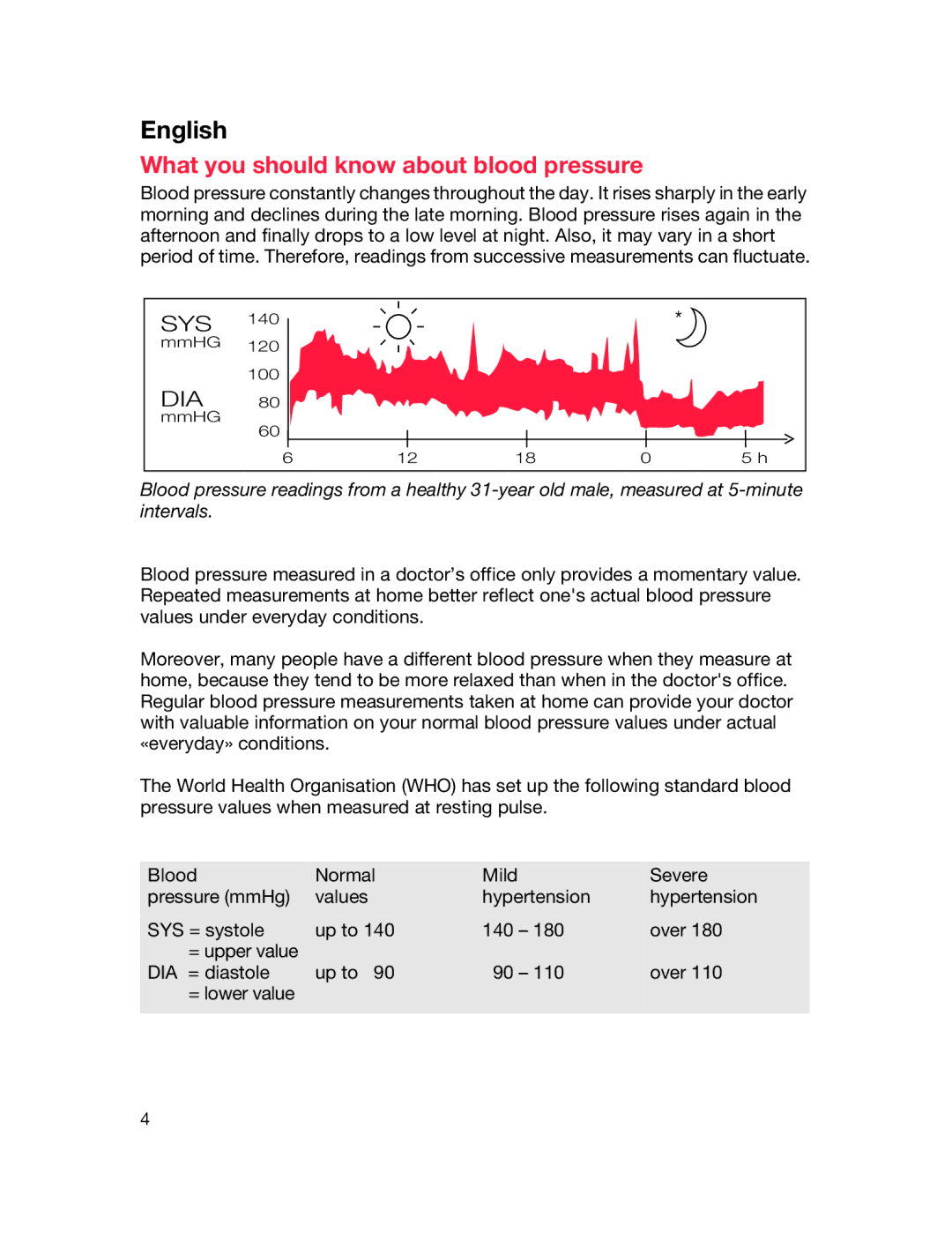
English
What you should know about blood pressure
Blood pressure constantly changes throughout the day. It rises sharply in the early morning and declines during the late morning. Blood pressure rises again in the afternoon and finally drops to a low level at night. Also, it may vary in a short period of time. Therefore, readings from successive measurements can fluctuate.
SYS 140
mmHG 120
100
DIA 80
mmHG
60
6 | 12 | 18 | 0 | 5 h |
Blood pressure readings from a healthy
Blood pressure measured in a doctor’s office only provides a momentary value. Repeated measurements at home better reflect one's actual blood pressure values under everyday conditions.
Moreover, many people have a different blood pressure when they measure at home, because they tend to be more relaxed than when in the doctor's office. Regular blood pressure measurements taken at home can provide your doctor with valuable information on your normal blood pressure values under actual «everyday» conditions.
The World Health Organisation (WHO) has set up the following standard blood pressure values when measured at resting pulse.
Blood | Normal | Mild |
| Severe |
pressure (mmHg) | values | hypertension | hypertension | |
SYS = systole | up to 140 | 140 | – 180 | over 180 |
= upper value |
|
|
|
|
DIA = diastole | up to 90 | 90 | – 110 | over 110 |
= lower value |
|
|
|
|
|
|
|
|
|
4
